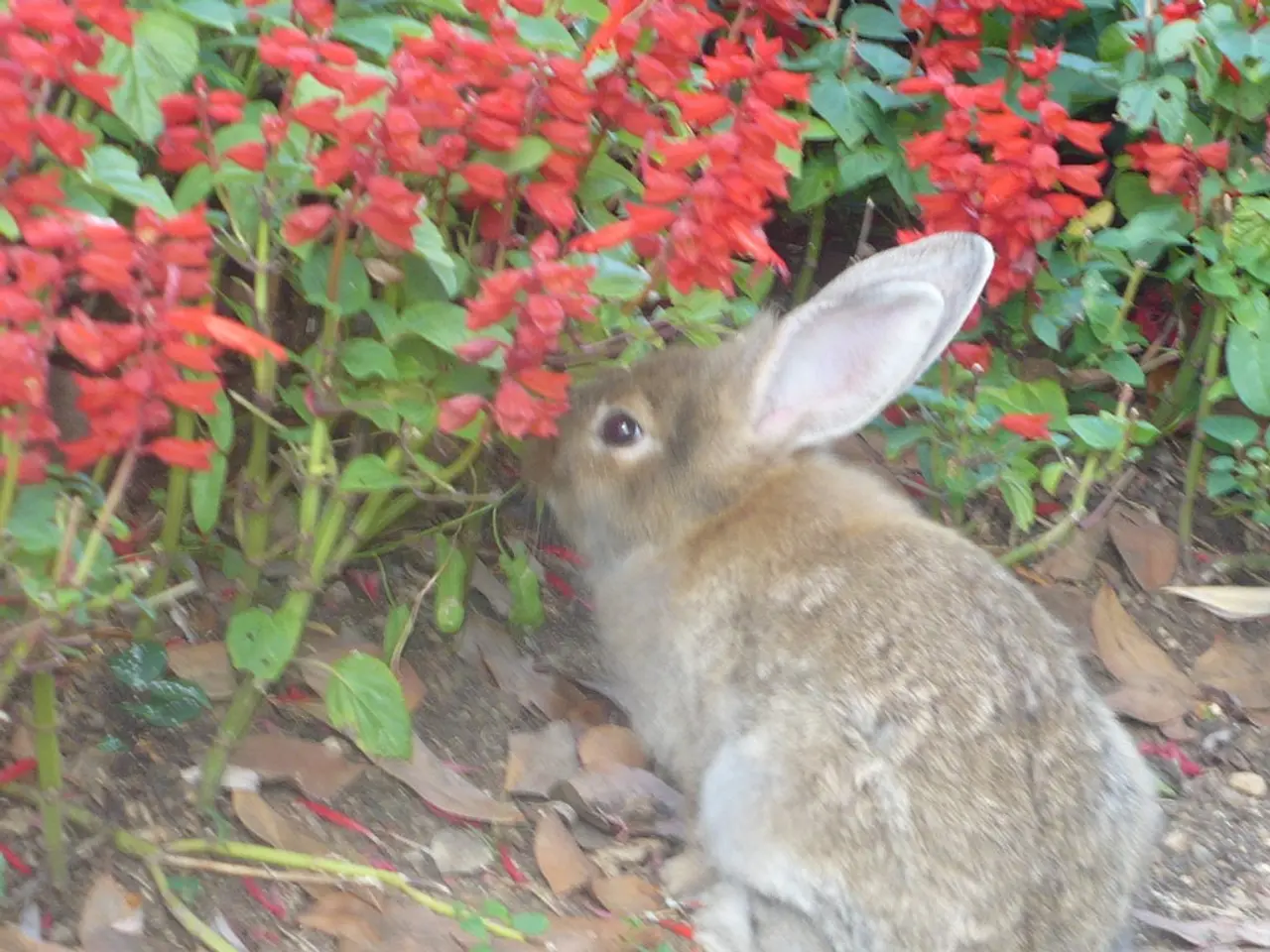Gardening Pest Conundrum: Uncovering the Optimal Rabbit Deterrent for Your Flower Bed
===============================================================
In the quest for a pest-free garden, many gardeners are seeking non-toxic solutions to deter rabbits. Here are some effective, homemade rabbit repellents that utilise natural ingredients to keep these garden invaders at bay.
Garlic and Chili Pepper Spray
Combine a few cloves of garlic, 1–2 hot chili peppers (like cayenne or jalapeño), and a tablespoon of vegetable oil with water. Strain the mixture and spray it around your garden plants. The strong smell and spicy taste act as a deterrent for rabbits.
Vinegar Spray
Mix white vinegar with water (about 1 part vinegar to 3 parts water) and spray it on plants or garden borders. The acidity and strong odour drive rabbits away.
Essential Oil Spray
Use peppermint essential oil diluted in water (10–15 drops per quart) with a small amount of liquid soap as an emulsifier. The scent of peppermint oil is unpleasant to rabbits.
Egg and Garlic Spray
Blend one raw egg with 1-2 cloves of crushed garlic and a quart of water; spray it around plants. The odour and protein content repel rabbits effectively.
These homemade sprays should be applied regularly, particularly after rain, to maintain their effectiveness. Additionally, using physical barriers (like chicken wire or plant cages) is helpful for protecting young or vulnerable plants.
Liquid Fence Rabbit Repellent
For a commercial option, consider Liquid Fence Rabbit Repellent. This smelly barrier that rabbits dislike can be applied to dry plants. It is available at local garden stores, Walmart, or online in a gallon or 32 oz. concentrate.
Other Rabbit-Repelling Plants
Utilising plants that rabbits dislike can also help keep them out of your garden. Examples include lavender, honeysuckle, tarragon, thyme, sage, echinacea, salvia, catmint, peppermint, lantana, sweet allysum, pot marigold, cleome, geraniums, wax begonias, vinca, snap dragon, poppies, sunflowers, and milkweed.
Planting rabbit-favorites in raised beds can help keep them away from your other garden plants, provided the beds are high enough that rabbits can't hop over them. Examples of rabbit-friendly plants include carrots, lettuce, clover, collard greens, parsley, black-eyed Susan, clematis, marigolds, pansies, petunias, and more.
A Rabbit Haven
It's important to remember that rabbits are animals too, and a rabbit haven should include a water source and some shelter for the rabbits. Other plants that rabbits dislike, such as columbine, can be incorporated into this haven.
Ultrasonic rabbit repellents, electronic devices that can be very effective, may be more expensive but are worth considering for those seeking a non-toxic, high-tech solution.
In conclusion, the best non-toxic homemade rabbit repellents for gardens utilise natural ingredients that discourage rabbits by scent or taste without harming them or the plants. By incorporating these methods into your gardening routine, you can enjoy a pest-free garden while ensuring the wellbeing of local wildlife.
Read also:
- Education Exhibition: August 2024 Display and Demonstration
- Enhanced solar power for 600-watt power stations: the BOOSTER unit offers an upgrade.
- Revolutionizing healthcare through Remote Patient Monitoring Systems: A life-changing approach!
- What's the Ideal Lighting for Your Coral Culture in the Aquarium?




